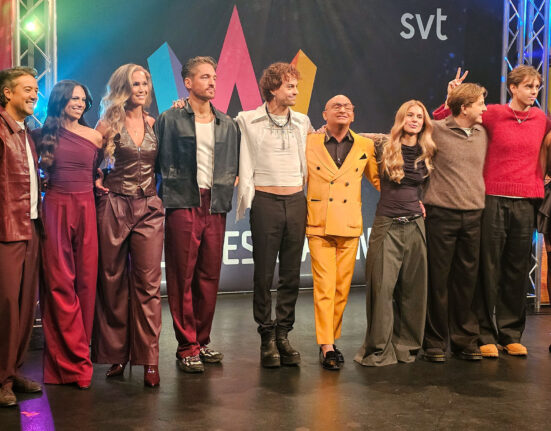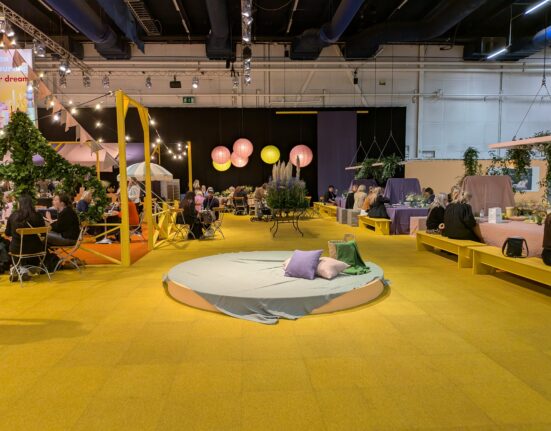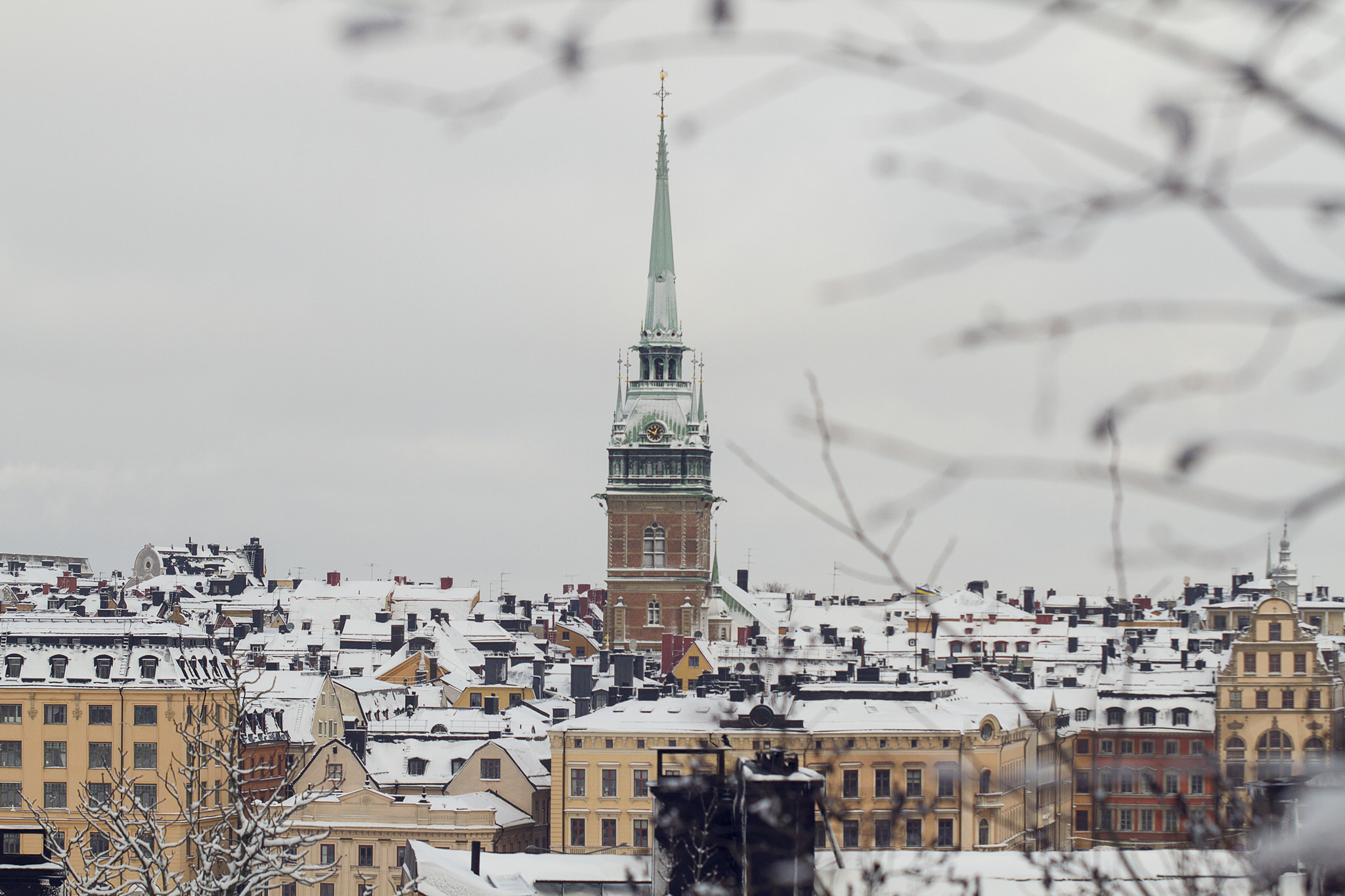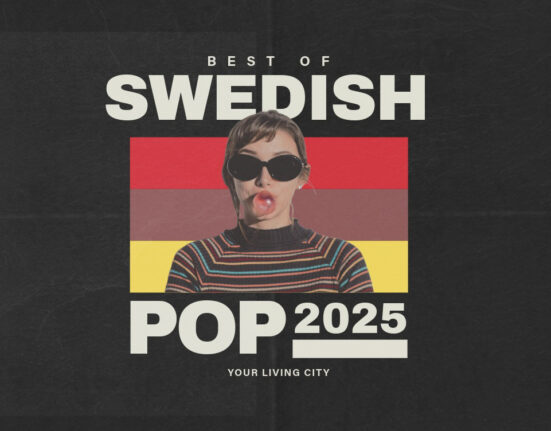Ah, Eurovision. The fun, the frocks, the fantastic spectacle. I remember watching it with my mum when I was 7, getting far too involved and crying at what I thought was unfair judging.
I took it less seriously at uni, when my friends and I would run a sweep-stake and have a Eurovision party; we had to bring in food and booze from the countries we drew. Every time a score was announced, each person had to drink a corresponding number of sips from their tipple. Whoever wanted to get really sloshed would be hoping they’d got Sweden, although it took a lot of sill to counteract 12 glugs of Absolut. But whether in earnest or revelling in the kitsch, I always watched it.
I didn’t know about Melodifestivalen though, the build up to Eurovision in Sweden, where the nation’s representative is selected. From thousands of Swedish hopefuls, 32 acts are chosen to compete in four televised semi-finals. Two artists will be picked from each of these semifinals (purely through televoting – democracy decides who represents the country!) and the 3rd and 4th most popular artists go into a separate show called Andra Chansen, Second Chance, from which another 2 performers are picked. These 10 talented artists then go to the Melodifestivalen Final itself (where the result is decided 50% by judges and 50% by televoting), held this year at Friends Arena in Solna, Stockholm. The final is more popular than Eurovision itself in terms of viewing numbers; both are absolutely huge and regularly place 1st and 2nd in the annual ratings.
The reason for its popularity is partly due to the fact that the mindset is slightly different here than in the UK. Back in old Blighty, Eurovision is not something to take terribly seriously (witness our last year’s entry); it’s a romp, camped up by first Terry Wogan and now Graham Norton. Swedes get the tongue-in-cheek attitude to it (most of the entries are light-hearted pop songs, Schlager musik), but it’s also a serious business, from the initial rounds of Melodifestivalen to the Eurovision final itself. I spoke to SVT’s Gustav Dahlander, manager of the official Melodifestivalen website about it:

Whilst Eurovision is more multi-faceted, Melodifestivalen feels more relevant to Swedes, since the artists competing will already be well-known to the audience. The songs, however, are a close-kept secret, which adds to the show’s appeal; our viewers know that what they will be hearing will form Sweden’s chart toppers for the year.
Gustav is exceedingly well-placed to talk about Sweden’s biggest event. He was a fan of both Melodifestivalen and Eurovision since he was a child and worked with fan sites before becoming senior editor of the official international website of Eurovision. It wasn’t long before SVT approached him to become part of their Melodifestivalen team. Dreams come true in Sweden and not just for those hopefuls performing in February. Gustav was enthusiastic about what we could gain from watching the show, hosting a party or even being lucky enough to see it live (you can buy tickets here). Here are his reasons why expats should join the Melodifestivalen bandwagon:
- See what Swedes do best.
Melodifestivalen is a must for people who want to understand about Swedish popular culture and especially our musical traditions. Per capita, Sweden is one of the world’s most successful exporters of popular music and this is where we showcase it.
- It’s not just the singing; it’s the show.
And to capture that show perfectly every year involves a huge amount of technical ability, which is lavished on Melodifestivalen. When you watch it, you’re also watching a masterpiece of camera work, lighting and sound innovations and technical expertise.
- Swedes are leaders here, not followers.
It was Sweden who first devised the ‘semi-final’ idea in 2002, which was promptly followed by Eurovision itself in 2004. What you see in Sweden this year may direct the whole way the show is run on an international level.
- It gives you a slice of Swedish life.
Society has changed and so has Melodifestivalen, as is reflected in the different social make-up of the competitors. If you watch the show, you’ll get to see those changes in micro form.
Of course, most of us will be watching this year’s show from the couch (I recommend some Absolut and sill too), but if you’ve the energy to throw a party or have been lucky enough to score tickets, you’ll enjoy the experience with even more gusto. However you’re celebrating, do watch it. Altogether now… ‘Euphooooriaaaa’!

For more information on the festival, when Sean Banan sings Copacobana and anything else you’d like to know about Sweden’s hottest event, go to www.svt.se/melodifestivalen.












